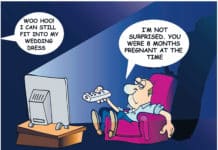Thinking of visiting or living in Australia? We’ve written a useful piece to help our readers understand the law and criminal records in Australia. Ignorance of the law cannot be used as a valid excuse when charged with a certain crime. While staying out of trouble altogether is the obvious solution, in real life things don’t always go like this. What happens when you do commit an offence in Australia and how will it affect your criminal record?
How does the age criteria apply?
Under Australian law, a child between 10-14 years is not considered responsible for a crime, which does not mean a very young offender might not end up in court. However, it is the prosecution’s job to prove the child was aware that what he or she did was very wrong. A child under the age of 14 is entitled to legal counsel and in most cases a good lawyer will argue their client did not understand the gravity of their act.
Minors over the age of 14 are responsible for their crimes in the eyes of the law, but they will be tried as juvenile defendants.
Once you turn 19, you are totally responsible for your acts and will be judged as an adult, even though many people that young are still very immature.
Juvenile offenders go to the Australian Children’s Court if they were younger than 19 at the time they committed the crime, even if they turn 19 by the time their case goes to trial.
Do all offences go on your criminal record?
This depends on the seriousness of your crime as well as on your attitude. If you are convicted in a court of law, whether you pleaded guilty or not, that conviction will go on your criminal record.
However, not all wrongdoings end up with a conviction.For instance, the judge will take a broad look at the situation, especially when you are charged with a minor offence. This is where your personal attitude plays an important role.
A judge will be more lenient with a defendant who owns up to the facts, assumes responsibility and expresses regret. All these will be considered mitigating facts, and the judge will also examine your personal circumstances, your family situation, whether you were bullied or peer-pressured into committing an offence.
If the judge finds enough mitigating circumstances, you might be let off with a warning and ordered to attend counseling sessions, without an actual conviction so the offence will not end up impacting your criminal record.

Do convictions stay on your criminal record permanently?
The law allows people convicted of minor offences to have the conviction erased from their disclosable criminal record, so it won’t affect their chances to further their education or to get a job. This is called the Spent Convictions scheme, which applies in all Australian states and territories. Convictions that resulted in a prison sentence of more than 30 months is considered serious enough to stay on your record.
Provisions may vary from one state to another, but generally a conviction is considered spent in 10 years, or 5 for juvenile defendants, provided you did not commit any other crime during that time.
Under this scheme, you are allowed not to disclose a spent conviction during a job interview and it is legal to swear under oath you don’t have a criminal record.
It should however be noted that there are certain checks and registrations in Australia that do not take spent convictions into account. For example, if you are applying for a working with vulnerable people registration (wwvp) or a working with children check (wwcc) in Australia then all convictions (including those when convicted as a child) are taken into account.
If you have any doubts as to what is and what isn’t on your record, you can always order a background check on yourself. There are many online character check agencies that are simple to use and provide you with a complete criminal record in a matter of days. If you’re considering applying for a job, it’s best to know exactly what is on your criminal record so you know how to address the issue during the interview.





